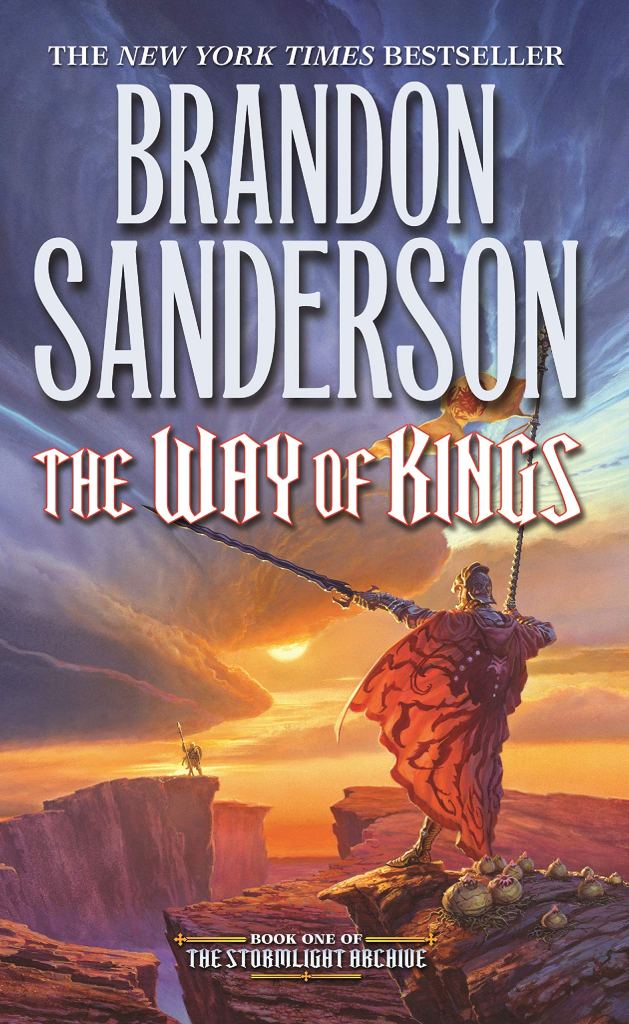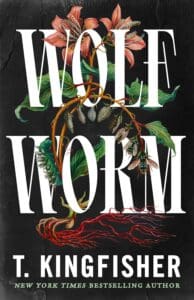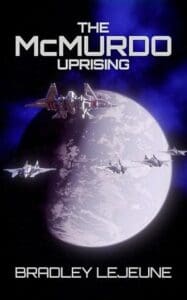Rating: 10/10
Synopsis
Roshar is a world of stone and storms. Uncanny tempests of incredible power sweep across the rocky terrain so frequently that they have shaped ecology and civilization alike. Animals hide in shells, trees pull in branches, and grass retracts into the soilless ground. Cities are built only where the topography offers shelter.
It has been centuries since the fall of the ten consecrated orders known as the Knights Radiant, but their Shardblades and Shardplate remain: mystical swords and suits of armor that transform ordinary men into near-invincible warriors. Men trade kingdoms for Shardblades. Wars were fought for them, and won by them.
One such war rages on a ruined landscape called the Shattered Plains. There, Kaladin, who traded his medical apprenticeship for a spear to protect his little brother, has been reduced to slavery. In a war that makes no sense, where ten armies fight separately against a single foe, he struggles to save his men and to fathom the leaders who consider them expendable.
Brightlord Dalinar Kholin commands one of those other armies. Like his brother, the late king, he is fascinated by an ancient text called The Way of Kings. Troubled by over-powering visions of ancient times and the Knights Radiant, he has begun to doubt his own sanity.
Across the ocean, an untried young woman named Shallan seeks to train under an eminent scholar and notorious heretic, Dalinar’s niece, Jasnah. Though she genuinely loves learning, Shallan’s motives are less than pure. As she plans a daring theft, her research for Jasnah hints at secrets of the Knights Radiant and the true cause of the war.
The result of over ten years of planning, writing, and world-building, The Way of Kings is but the opening movement of the Stormlight Archive, a bold masterpiece in the making.
Speak again the ancient oaths:
Life before death.
Strength before weakness.
Journey before Destination.
and return to men the Shards they once bore.
The Knights Radiant must stand again.
Review
Imagine this scene, you’re a scholar or student of history and you’re wandering down the aisle of a specific section in a library. You grab several large volumes to return to your table and your extensive research thesis you’ve been working on for years. You sit down and in front of you lays a thousand-book-pages book, and you sift through every page, drinking the excitement of investigation and glancing at sketches, pictures and schematics of times of old, slowly taking notes and drawing your own conclusions. This is how I felt while I was reading The Way of Kings. A rich study about an extensive world name Roshar with interesting characters and their history. Even after the first 1000 pages of this grossly engaging and epic adventure (4000-5000 pages total), I felt like I only scratched the surface.
Let’s start with the plot. Told through several characters and weaved through different times and settings, the story engages you from the very beginning by exploring an intricate series of events, all related albeit at a slow pace initially, but quickly ramps up the drum beats until you reach the crescendo of war, surprises and shocking events at the end. But because of the richness of its world and depth of characters, the initial acts rarely appear slow or without conflict as it’s built straight into the storytelling. Never it felt a chapter went into infodumps or boring dialogue/characterization.
Which leads me to the other solid element of the book, the characters. They were fully fleshed out and truly, as I said initially, appeared like real people; where a historian sat down with and we’re experiencing their biography. Their presence enhances the story and brings the novel into the “classic” category, and we’re just getting started. Sanderson spends a “just-perfect” amount of time having us live their struggles, traits, perks and personality through the affairs of the book. It doesn’t feel forced or out of place.
The world-building was just wow (can’t think of any other words to describe it), and this is truly where Sanderson shines (outside of how he ends his books). The maps, the sketches (even intricately woven into the story by a character who draws them), the code explained and even the basic magic system are all part of the tapestry of this publication—again like a scholar—that feels like we’re reading an encyclopedia on these details, all woven into the perfectly plotted narrative with people (not characters) we quickly grow to love and want to study more about.
If you’ve read any of Sanderson’s series such as Skyward, Mistborn or the Reckoners, drop your expectations at the door as this is far from the same style of drama. We can compare the pace of The Way of Kings to walking up a great mountain. As you begin your hike, you enjoy the view and immerse yourself in the environment’s beauty, but it’s far from the most active exercise. But when you get back down you decide to run downhill; you’ll feel the intensity of its descent! That’s how it feels as you read the last 200-300 pages of The Way of Kings; it feels engaging, nerve-wracking and dramatic as you take in everything that is hurled at you. I literally had to take a few breaks as I read the last 200 pages (in the same sitting) as the last moments were shocking, exciting, deliberately intense and part of the best reading experience I had in years (probably ever).
The Way of Kings is an amazing narrative that will bathe you into a splendid world, where you’ll quickly forget you’re reading a book.




I love this review, Manny. You highlighted the structure and content so nicely without any spoilers for readers like me, still anticipating this novel. Well done! 👏👏👏